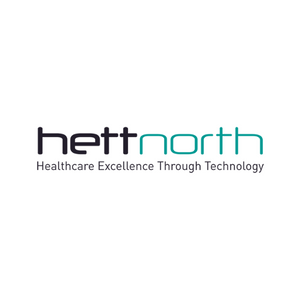The first ever ‘HETT North’ took place in March at the Manchester Central Convention Complex, providing an insightful day for digital health professionals in the North of England. The opening keynote in the Digital Maturity Forum focused on the ‘State of Play in Digital Transformation’ with an industry leading panel including:
-
Sarah Thompson, CCIO, Wirral University Teaching Hospital NHS Foundation Trust
-
Andy Webster, CCIO, Leeds Teaching Hospitals NHS Trust
-
Eddie Olla, CDO, Coventry and Warwickshire ICB
-
Rhod Joyce, Deputy Director of Innovation Development, NHS England
-
Will Goodwin, Assistant Director of Programmes – Digital Maturity, NHS England
Read the overview of the key points from the discussion or listen to the full session below:
Off the back of the select committee report what challenges are you facing within your Trust?
Andy Webster, CCIO, Leeds Teaching Hospitals NHS Trust spoke on the state of play of digital transformation across Leeds:
“In Leeds it resonates with the findings of the select committee report, in that actually we’ve got some really good beacons of practice.”
One of the key beacons of practice at Leeds Teaching Hospitals NHS Trust is the mature shared care records which has been in practice for 8-10 years which have been powerful in providing clinicians with access to information 24/7.
However, despite the successes the trust still has areas for improvement, for example telephony systems and workforce. Leeds experience one of the key issues as highlighted by the select committee in that the recruitment and training of their workforce is a challenge.
.jpg?width=4000&height=2668&name=DPP-HETT_North_23-175-small%20(1).jpg)
How can we move forward with digital transformation in the ICBs and what are the challenges?
“It needs to be clinically led, digitally enabled, we need to ensure that we are really thinking about what problems we are trying to solve and bring the challenges together and align them with the solutions.” – Eddie Olla, CDO, NHS Coventry and Warwickshire ICB
It was discussed how there is often an inequity of digital maturity across systems, the country and region, but in order to move forward with digital transformation, a systematic approach following the NHS framework should be taken:
- Digitise – context of what is being transformed to start with, by understanding what is digitised and what isn’t.
- Connect – working with the local ICSs to ensure there is an opportunity to get a complete picture of the patients the ICS serve to bring together a coordinated strategy.
- Transform – start by understanding the landscape and then put in place a clear programme of activities that will get us there.
How can we support the relationship between national and local and get the basics right between standards and assurance?
Rhod Joyce, Deputy Director of Innovation Development, NHS England, moved on to discuss the huge challenge of supporting the relationship between national and local with the level of digital maturity currently varying across the 42 ICBs, making it challenging to ascertain which structures should be put in place.
However, it was highlighted that suppliers should also be partially responsible for the improvement of digital equity and maturity. Rhod Joyce discussed how nationally the NHS should be setting out the requirements to suppliers looking to enter or maintain their position in the market. This is where the DTAC survey has been critical in finding the baseline standards to enter the market to ensure there is commonality.
It was further highlighted how DTAC is there to support local to make better decisions around suppliers by sharing best practice to ensure we are using the right technologies to support the right patient outcomes.
How do we consider what good looks like when driving forward change?
Will Goodwin, Assistant Director of Programmes – Digital Maturity, NHS England, moved on to discuss the ‘What Good Looks Like’ framework. The framework acts as a digital North Star to define what digital transformation should look like and was formed partially through working with frontline clinicians to rebuild on what it means to people.
The Digital Maturity Assessment (DMA) was launched off the back of the framework to help people understand where they are on that journey to the digital North Star so they can see the opportunities and where they need to build on capabilities to increase digital maturity. Then off the back of the assessment, there can be better investment at local and national level as it helps to provide a clear picture of the landscape.

How do we translate findings from digital maturity assessments back to suppliers to drive forward the innovation and maturity?
The panel moved on to discuss how the NHS are working to drive forward digital maturity. This is partially achieved through having a mature language that both the provider who wants to upgrade the system and the supplier understands, which is helping to get traction between differentiation and innovation. DMA can be time consuming to complete but is more beneficial for ICBs to have the dialogue with the ICSs and suppliers and redirect the investment to the most appropriate needs.
"DMA & DTAC are really great tools to increase our digital maturity in a uniformed way" – Eddie Olla, CDO, NHS Coventry and Warwickshire ICB
"We need to work closer as a centre and be really clear on the guidance to say 'this is what assurance looks like' and then we get to move onto the next bit which is the scaling, but we have to start with the baseline" – Rhod Joyce, Deputy Director of Innovation Development, NHS England
Join the conversation, Register for HETT North 2024!
Be part of the next discussion around digital health by registering for HETT North 2024 in February. On 28th February 2024, thousands of delegates will join us at HETT North in Manchester to enjoy a full day of CPD accredited educational sessions, interactive activities, and networking opportunities with 100+ innovative suppliers and 100+ expert speakers.
%20(1).png?width=500&height=58&name=HETT%20insights%20logo%20RGB-04%20(1)%20(1).png)


